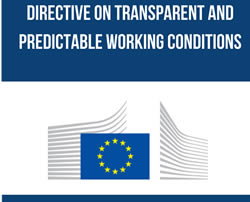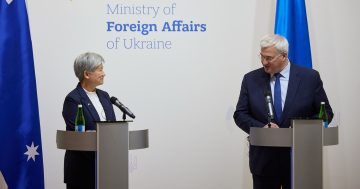EUROPEAN UNION
 The European Public Service Union (EPSU) says a new European Union-wide agreement on a proposed Transparent and Predictable Working Conditions Directive contains a loophole that would deny rights to some Public Service workers.
The European Public Service Union (EPSU) says a new European Union-wide agreement on a proposed Transparent and Predictable Working Conditions Directive contains a loophole that would deny rights to some Public Service workers.
The EPSU said national Governments had ensured they would be able to exclude certain groups of Public Service workers from benefitting from parts of the Directive.
“EPSU condemns this and believes that Governments have abused their position as regulators in the general interest for all workers and pursued a narrow employers’ agenda,” the union said.
“EPSU is also concerned that this flies in the face of previous social legislation that didn’t provide for such broad exclusions and sets a dangerous precedent for the future.”
The new rights included in the draft Directive cover reasonable notice about changes in shifts; the right to be paid if work assignments are cancelled at short notice; a requirement on employers to pay for training that workers need to do for their job; a six-month limit on probation periods; and the right for workers to take jobs with other organisations outside the work schedule established with their employer.
The union said the scope of the draft was actually very wide, applying to on-demand workers, intermittent workers, voucher-based workers, platform workers, freelancers as well as paid trainees and apprentices.
“This makes it all the more frustrating that Public Service workers are targeted in the possible exclusions,” the EPSU said.
“Above all, we condemn the fact that member States insisted on having the right to exclude such broad groups of workers such as Civil Servants as well as those involved in law enforcement, the police, armed forced and public emergency service workers.”
It said there had been no discussion on why there was a need to exclude any of these workers.
“It could create a situation where a nurse or police staff can benefit from the protections and rights of this EU directive in one country but not in another,” the union said.
“This directive leads to the kind of unjustifiable discrimination between workers that the EU should be striving to prevent,” ir said.
Brussels, 10 February, 2019











